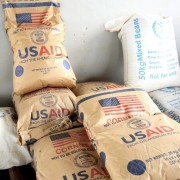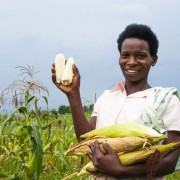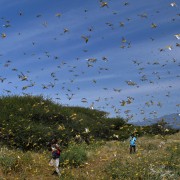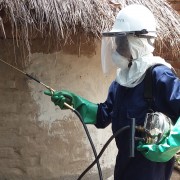Speeches Shim

This week, the U.S. Agency for International Development (USAID) and the Ugandan Ministry of Health are celebrating the successful conclusion of the USAID/Uganda Health Supply Chain activity, implemented by Management Sciences for Health. Since 2014, the activity has focused on improving the overall health of the Ugandan people by ensuring that Ugandans have uninterrupted access to medicines and medical supplies.
The U.S. government’s Feed the Future initiative, through the United States Agency for International Development (USAID), is proud to award $245,000 to the Food and Agriculture Organization of the United Nations to measure the impact of desert locusts in Uganda. The worst desert locust outbreak in decades is underway in the greater Horn of Africa region, including Uganda. Thousands of hectares of cropland and pasture have been affected. This is a major threat in a region that is already facing food security crises. Since February 2020, the desert locust swarms have reached Karamoja, Teso, Acholi, and Lango regions, posing a potential threat to the food security of more than 1.3 million people. The Government of Uganda needs urgent support to detect and reduce locust populations, prevent more swarms, and avoid the spread to even more areas.
The U.S. Agency for International Development (USAID) has awarded $9.9 million through the international non-governmental organization GiveDirectly, in partnership with the Government of Uganda, to deliver cash transfers supporting Ugandans who lost their livelihoods as a result of COVID-19 and necessary public health restrictions.

This week, the U.S. Agency for International Development (USAID), part of the U.S. Mission in Uganda, celebrated the 350,000 youth who gained skills to thrive in the agriculture sector and improve their entrepreneurship abilities via the five-year USAID Feed the Future Uganda Youth Leadership in Agriculture (YLA) Activity. Between July 2015 and June 2020, YLA helped increase incomes and improve livelihoods of Ugandan youth between the ages of 10 and 35 through improved skills and competencies. The activity worked closely with 38 private sector organizations, opening economic pathways in the agricultural sector for hundreds of thousands of young people.

The U.S. government, through the U.S. Agency for International Development (USAID), awarded a new activity this week to confront the desert locust infestation threatening eastern and northeastern Uganda. USAID’s $134,862 investment will support the Government of Uganda to take measures against the infestation and its devastating impacts on people’s livelihoods and food security. The locust outbreak, the worst in decades in East Africa, is affecting the farming and cattle herding communities in Karamoja, Teso, Acholi, and Lango, some of the poorest and most marginalized regions in Uganda.

The United States Agency for International Development (USAID) is continuing its long-standing commitment to protecting and promoting biodiversity in Uganda through three new biodiversity awards totaling $21.5 million (UGX 80 billion). These multi-year activities will reduce wildlife trafficking, help communities manage their natural resources, and promote real-world alternatives to poaching and encroachment into natural areas. They will also provide support for authorities in protected areas and engage the private sector to develop sustainable solutions for affected communities. The activities will reduce wildlife crime by improving the capabilities and coordination of local and national authorities, and will further develop the Uganda Biodiversity Fund—an organization that USAID helped found and is now working with as a partner—into an institution that can generate and manage financing for biodiversity conservation nation-wide. Additionally, these activities will have the benefit of reducing human-wildlife interaction that can lead to the emergence of pandemic zoonotic diseases.

On May 25, the U.S. government’s President’s Malaria Initiative (PMI) began the second phase of indoor residual spraying (IRS) in eight high-burden malaria districts in Lango and Teso sub-regions through its VectorLink Project. PMI is led by the United States Agency for International Development (USAID) and implemented together with the U.S. Centers for Disease Control and Prevention (CDC) in partnership with the Ugandan Ministry of Health. Phase two of spraying is expected to last 24 days and will include the following districts: Otuke, Alebtong, Lira, Dokolo, Kaberamaido, Kalaki, Amolatar, and Serere. This second phase of spraying follows a March spraying completed by the VectorLink Project in Butebo, Pallisa, Kibuku, Budaka, Butaleja, Namutumba, Bugiri, and Tororo.

KAMPALA – The United States Agency for International Development (USAID) hosted a national close out event on February 25 to celebrate the achievements of the USAID-funded Feed the Future Producer Organizations Activity, which commenced in 2016 and will end in April 2020. The Producer Organizations Activity strengthened business capacity, governance, member services provision, and farmer-led advocacy in 25 secondary agriculture producer organizations in 12 selected districts in Uganda.


Comment
Make a general inquiry or suggest an improvement.